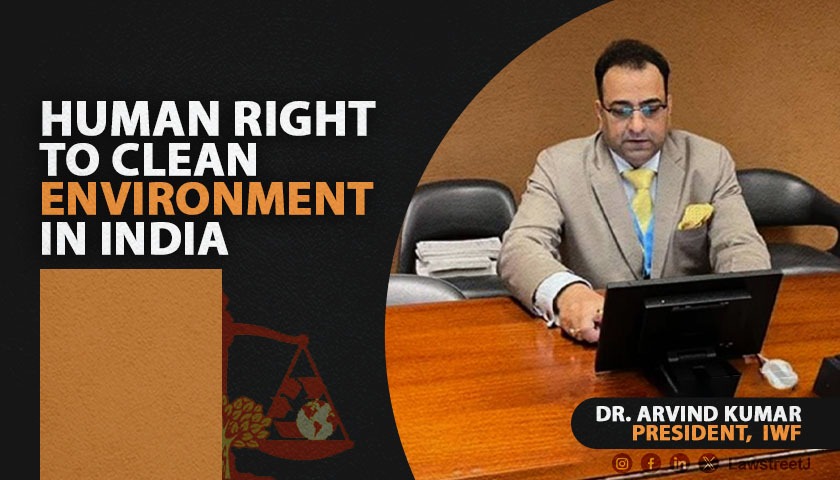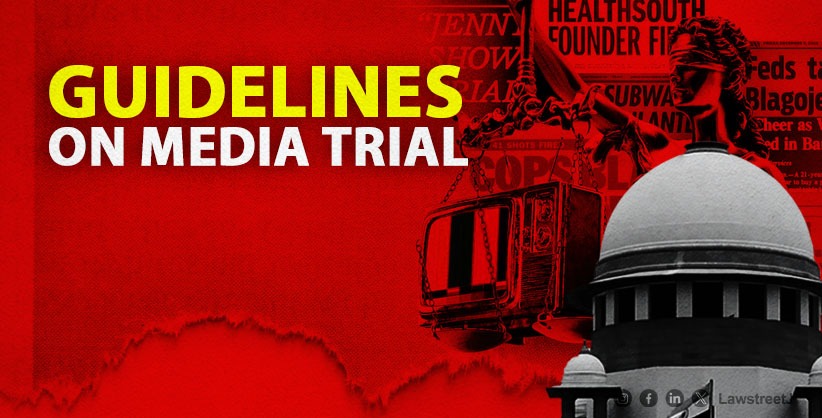Right to Water is not a privilege it is a basic human right and for the first time in its history, the United Nations has recognized that everyone, everywhere, has the right to live in a safe, clean, healthy and sustainable environment including clean air, safe and sufficient water, healthy and sustainably produced food, non-toxic environments, healthy ecosystems and biodiversity and a safe, livable climate. With the urgent global challenges posed by environmental degradation and the triple planetary crisis of climate change, pollution, and nature and biodiversity loss, the question of the need for an autonomous right to a clean, healthy, and sustainable environment has never been more timely. Biodiversity loss, species extinction, climate change and the general degradation of the world's ecosystems have a profound global impact on the enjoyment of human rights. Addressing the challenges they pose to the protection of human rights should become a priority especially as their impact will continue to grow in the years to come.
The Right to a clean environment has been adopted by the Indian Constitution under Article21. The Constitution of India , 1950 did not include provisions related to the protection and preservation of the environment. However, under Article 21 (Right to Life) of the Constitution of India, the right to a clean and healthy environment is incorporated as a fundamental right. It states that No person shall be deprived of his life or personal liberty except according to procedures established by law. Articles 48A and 51A (g) were introduced under the Constitution (Forty-second Amendment) Act, 1976 which conferred constitutional status to environmental protection. The primary motive of the Environment (Protection) Act is to provide for the protection and improvement of the environment.
54th session of UN HRC
The 54th session of the United Nations Human Rights Council (UNHRC) is underway in Geneva from 11th September 2023 to 6th October 2023. Among the several reports and topics of discussion the human right to development, Human right to water and sanitation etc. will also be discussed and reports shared by the special rapporteurs. India Water Foundation as an Observer Organization of the UN HRC and organization with special consultative status with Economic and Social Council of the United Nations (UN ECOSOC) had the privilege as the only organization from India to organize an official side event at the 54th session of UNHRC. The side event was titled Safeguarding human right to Water and Sanitation in India amidst Climate Emergency. The event analysed the policies and programmes in India related to the human right to Water and Sanitation especially in the context of the climate emergency the world is grappling with.
1. https://en.wikipedia.org/wiki/Constitution_of_India
2.. https://en.wikipedia.org/wiki/Environment_Protection_Act,_1986
IWF at 54th session of UN HRC
The various speakers in the event applauded the efforts of the Government of India made in the last decade in the Water and Sanitation sector and gave some pragmatic and robust suggestions and recommendations. Dr. Arvind Kumar, President, India Water Foundation (IWF) highlighted India has made commendable progress in the field of sanitation and water since the launch of the Swachh Bharat Mission (SBM) and the Jal Jeevan Mission (JJM) programmes currently, 67.71% rural population have access to clean drinking water, 40% rural households have declared themselves Open Defecation Free Plus. This leads to strengthening of public health systems, maintenance of cultural and ecosystem diversity, prevention of migration of ethnic communities, and sustainable sources of water leading to equity and equitable access." Dr. Satya Tripathi, Secretary General, Global Alliance for Sustainable Planet (GASP) shared that we have to Prioritize access to water and sanitation services in rural and marginalized communities. Engage local communities in the planning, implementation, and management of water and sanitation projects. Launch public awareness campaigns to educate citizens about water conservation, hygiene practices, and the importance of sanitation. Ms. Karin Gardes, COO and Acting Executive Director of Stockholm International Water Institute (SIWI) said Climate change is a multiplier of inequalities and that requires tailored solutions. These solutions should target specifically the most vulnerable people, focusing on conditions of accessibility, acceptability and affordability of the WASH services. India has made significant progress in the water and sanitation sector and it all boils down to improved water governance.
Mr. Rajan Ratna, Deputy Head, SSWA Office, UN ESCAP said that despite these overall subregional situations, countries have performed well on some of the targets and other countries must learn from successful initiatives and replicate them. For example, Indias Jal Jeevan Mission, a drive to provide drinking water to every house is a successful example where the current target has been achieved well ahead of time. Similarly, the Swachh Bharat Abhiyan (Clean India Mission) is another success story. Ms. Sonja Koeppel, Secreatry Protocol Water and Health and Secretary of the UN Convention shared the the Protocol on Water and Health, and mentioned it provides a practical tool for implementing the 2030 Agenda: Its progressive target setting and national reporting on all aspects of water, sanitation, hygiene and health are mechanisms to accelerate progress. She called on all Central Asian countries to ratify and implement the Protocol and use its many tools such as the equitable access scorecard and the target-setting approach to progressively realize the human rights to water and sanitation. Mr. Vishwaranjan Sinha highlighted how Water governance capacity should be understood as the competence of a society to ensure the development of sustainable water resources and the implementation of effective water management.
3. https://swachhbharatmission.gov.in/sbmcms/index.htm
4. https://jaljeevanmission.gov.in/
Water and Sanitation- In India
In the last decade the government has brought many policies and flagship programmes for Water and Sanitation adopting both top down and bottom-up approach. For Sanitation the Swachh Bharat Mission/ Clean India Movement where over 105 million toilets were built and transformation in sanitation habits through mass scale behaviour change of more than 600 million Indians was achieved. For complete water security and access to safe water an initiative of Jal Jivan Mission/Water Life Mission was launched to achieve safe and affordable drinking water in rural households by 2024. As per government reports at the time of the launch of the Mission in August 2019, 16.65% had access to tap water while now 67.71% rural population have access to clean drinking water. Community members have been trained for drinking water source augmentation, grey water treatment and its reuse, and regular O&M of in-village water supply systems. Women have been trained in rural areas for testing water samples using Field Test Kits to ensure water quality.
This event received more traction because water and sanitation is a basic human right of every individual on earth, and its importance cannot be overemphasized. However, despite its critical role it remains a significant challenge for many communities worldwide with 1 in 4 people 2.2 billion people without access to safely managed drinking water, while 4.2 billion go without safe sanitation services and 3billion lack basic hand washing facilities. Rapid urbanisation, climate change, and unsustainable water management practices have all contributed to the global water and sanitation crisis especially amidst the climate emergency that is staring us in the face. It is driven by over demand, mismanagement and the impacts of the triple crisis of climate change, biodiversity loss and pollution. Unless we act now, almost half of the worlds population will suffer acute water stress by 2030.A recent study indicates that more than 75% of Indias districts are extreme weather event hotspots and more than 80% of the Indian population resides in districts highly vulnerable to extreme hydromet disasters i.e., floods, cyclones and droughts. Water scarcity, water quality deterioration, infrastructure damage and an increased spread of diseases due to unsanitary practices and disasters are some of the impacts that occur due to climate change.
Way forward
States have obligations towards the human right to drinking water within their territorial jurisdiction. Businesses have responsibilities across their sites, or within their fence line, and increasingly beyond the fence line, as shown in the sections below. Furthermore, states have extraterritorial obligations to respect this right and need to regulate corporations so that they do not cause human rights abuse in other countries. Businesses are expected to respect covenant rights regardless of whether domestic laws exist or are fully enforced in practice. Water footprint is a useful tool to raise awareness of the impact of an individual as well as national consumption. India demonstrates that the progressive realisation of the human right to drinking water is deeply related to t involve local communities and cater to their specific needs and vulnerabilities. A community-based water management initiative through community self-regulation and participation is a must for successful efforts. The onus of keeping our environment clean and healthy is not just on the Government but it is a mutual responsibility of all the citizens of the country. To conclude, it can be determined that a clean and healthy environment is an important human right that is available to every citizen. Despite this, the degradation of the environment due to the insensitivity of people towards nature has consequently affected human health.
5. https://www.unwater.org/news/who-and-unicef-launch-updated-estimates-water-sanitation-and-hygiene
6. https://www.unwater.org/news/who-and-unicef-launch-updated-estimates-water-sanitation-and-hygiene
Brief bio of author
Dr. Arvind Kumar is President and Founder of India Water Foundation. He is a strategist and key-influencer in development sector with more than 28 years of experience, author, columnist, Water and Human Rights Pro-activist, and specializes in ecosystem-based adaptation, water-energy-food nexus, with specific emphasis on Transversality approach of inter-linkages between water, environment and SDGs. He has published over 500+ research articles and is a Ph.D. Defense Studies. He jointly edited a publication with SAC Dhaka titled SAARC Outlook on Water-Energy-Food Nexus in SAARC Region. Author of United Nations: 75 and beyond to commemorate 75 years of service of UN, 'Ecosystem Based Adaptation' published by Elsevier London and 'India @75 and Beyond'.



![Women cant be denied job for not being married: Rajasthan High Court [Read Judgment]](/secure/uploads/2023/09/lj_8336_fbfe7a8f-f672-4a69-86ba-ba50c8f28544.jpg)
![Supreme Court Declares Retroactive Prosecution of Central Govt Officers in Corruption Cases [Read Judgment]](/secure/uploads/2023/09/lj_7861_761f7288-0461-48fc-8fc5-0a54fdeb9c73.jpg)





